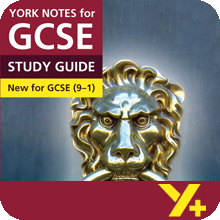Your Assessment
Read through the answer below and decide what grade to give it. Use the Hints & Tips to help you make your assessment.
Question: Read from ‘For again Scrooge saw himself …’ to ‘...‘‘I was a boy,” he said impatiently’ (Stave Two, pp. 34–5). In this extract, Scrooge and Belle discuss how Scrooge's desire for money has changed him.
Starting with this extract, explore how Dickens presents Scrooge's attitude to money.
Write about:
- how Dickens presents Scrooge's attitude to money in this extract
- how Dickens presents Scrooge's attitude to money in the novel as a whole.
In this passage, Dickens presents Scrooge as someone who is obsessed with money, even to the point of choosing it over the woman he had proposed to. His appearance and words combine to show us this obsession.
Dickens shows us Scrooge’s face and eyes show his love of money; his face ‘had begun to wear the signs of care and avarice’ and he tells us ‘There was an eager, greedy, restless motion in the eye’. The use of ‘avarice’ and ‘greedy’ emphasises his love of money and ‘restless’ suggests he will not be satisfied with what he has.
Dickens also shows this love of money is ‘passion’ and he uses the image of the tree saying it has ‘taken root’ and there will be a ‘shadow’. This shows us his future isn’t good if he goes down this path. The idea of ‘passion’ links to Belle as he should feel passion for her as he was going to marry her but he didn’t.
Dickens makes Belle stand up to Scrooge and she calls money his ‘idol’ suggesting he worships it and calls ‘Gain’ his ‘master-passion’. Even though this is really strong Scrooge doesn’t deny it – he justifies it instead. Dickens is showing us that this is the start of the Scrooge we see in the office on Christmas Eve.
As well as justifying his obsession with money, Scrooge dismisses how he was as a young man: ‘“I was a boy,” he said impatiently.’ This shows us how changed he is and that Belle was right to end the engagement.
Overall in this extract we can see without doubt that Scrooge loved money and saw that as the right thing to do. This allows Dickens to convey his message about the dangers of loving money more than people.
This message is also clear elsewhere. At the start of the novel, when he is in the office, Dickens establishes Scrooge’s miserly nature very quickly by telling us he will only allow Cratchit one lump of coal that can’t be increased for ‘so surely as the clerk came in with the shovel, the master predicted that it would be necessary for them to part’.
This reminds us of the precarious nature of employment at the time and links to the desire the younger Scrooge had for making enough money to not be in that position. Dickens then goes on to show us that he thinks celebrating Christmas is a waste of money and time that could be spent earning money.
Finally, Dickens really shocks us by including the scene of Scrooge and the charity collectors. In this scene Dickens shows that Scrooge loves money more than humans when he says the poor should die and ‘decrease the surplus population’. Dickens wants us to be shocked and to reject Scrooge and all he stands for. Dickens uses this phrase ‘surplus population’ to make a political comment about policies and debates about the poor at the time, policies Dickens didn’t agree with. People thought the poor were lazy but Dickens thought they needed schools and education. He shows us this again with the presentation of the children, Ignorance and Want, along with the warning to ‘ Beware this boy (Ignorance), for on his brow I see that written which is Doom.’
